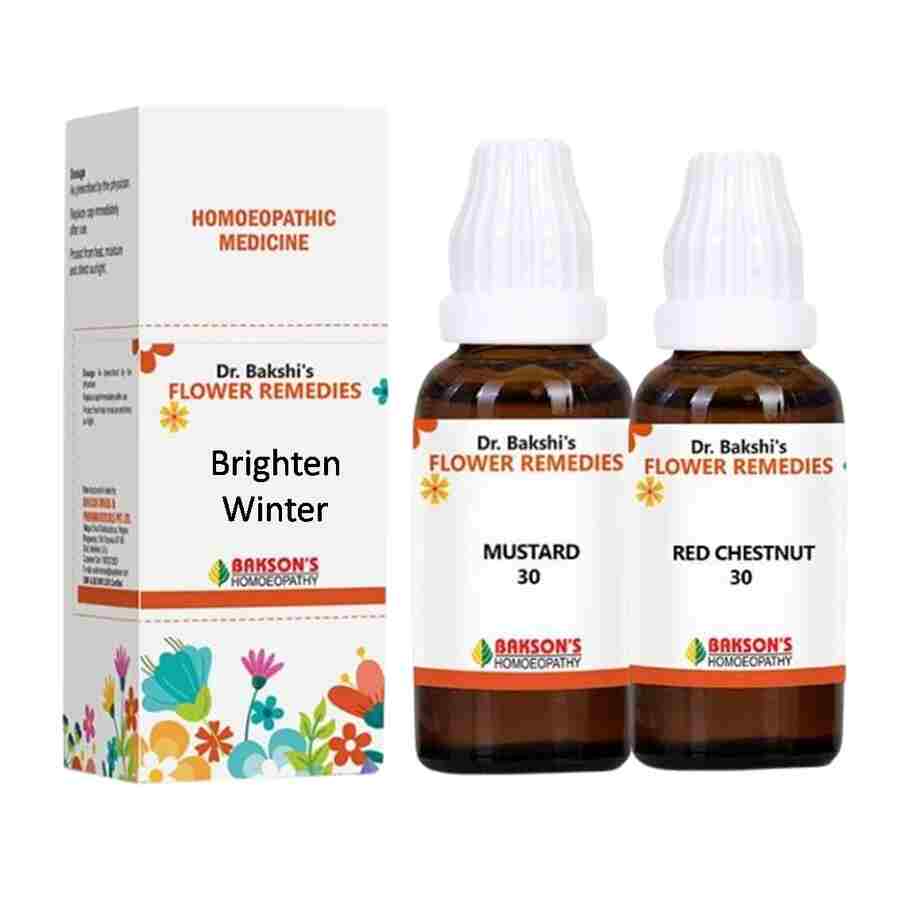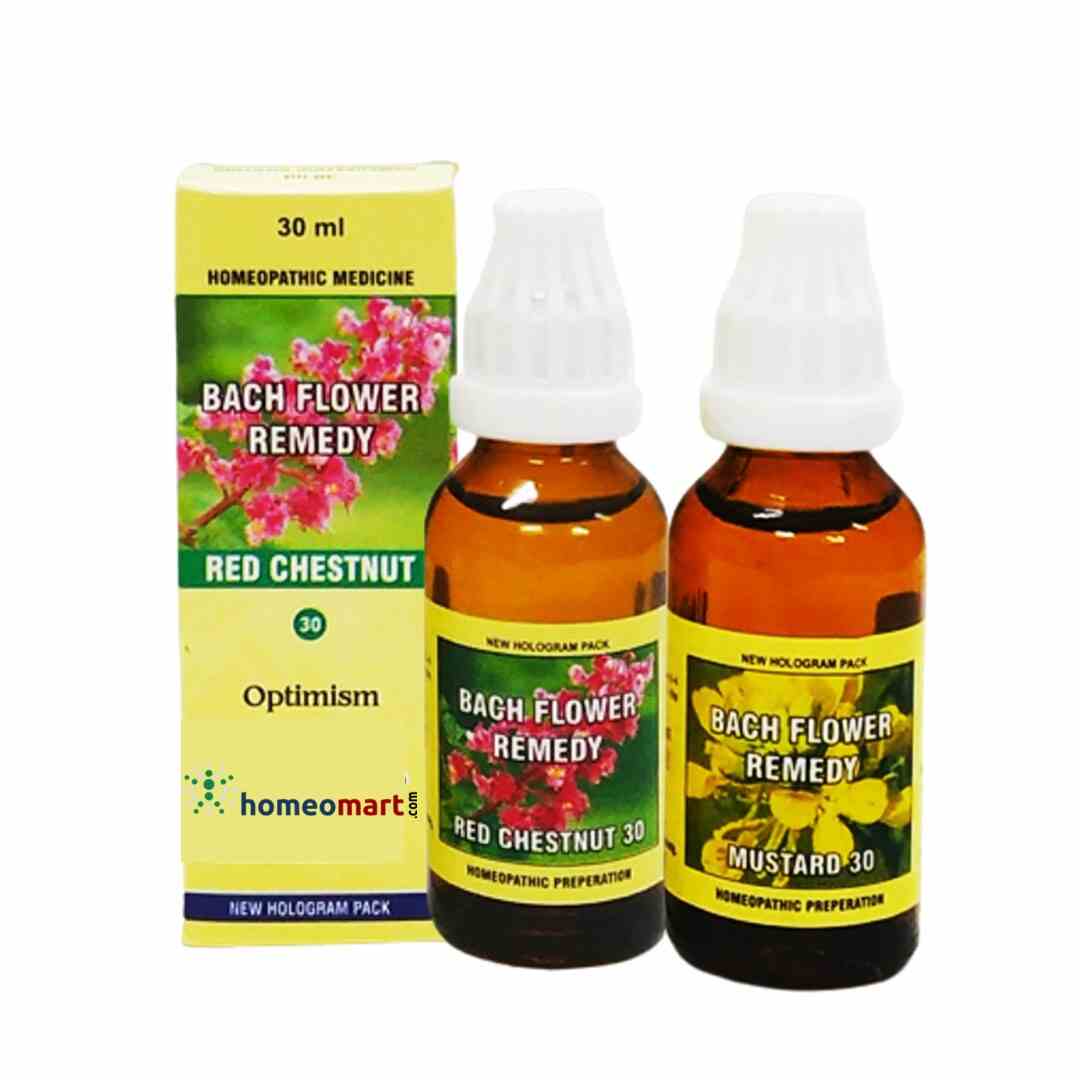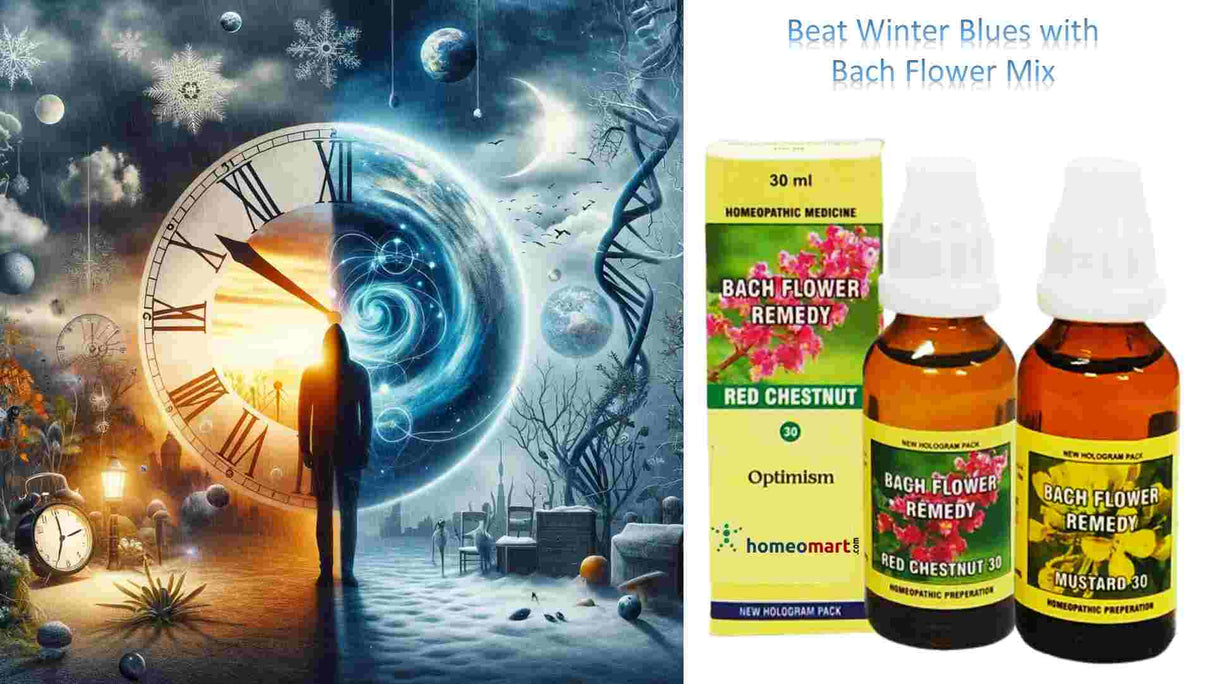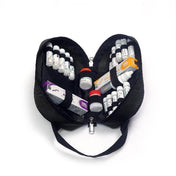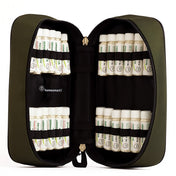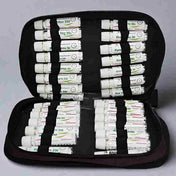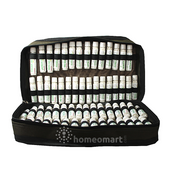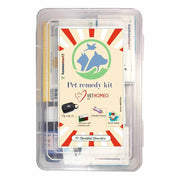Beat the Winter Blues: Mustard & Red Chestnut Bach Flower Remedy Mix
Beat the Winter Blues: Mustard & Red Chestnut Bach Flower Remedy Mix - 30ml*2 Bakson is backordered and will ship as soon as it is back in stock.
Couldn't load pickup availability
Description
Description
Find Your Winter Wellness with Bach Flower Remedies
Transform your winter experience with our Mustard & Red Chestnut Bach Flower Remedy Mix. Specially crafted to counteract the winter blues, this blend offers a natural pathway to uplift your spirits and energize your days. Say goodbye to seasonal melancholy and hello to a winter filled with joy, peace, and vitality. Dive into a season of wellness with our gluten and allergen-free solution and let your light shine bright through the coldest days.
Bach Flower Remedy Mix: Mustard & Red Chestnut for Winter Blues
The shift to colder, darker days can often bring about a sense of gloom or the winter blues, affecting our mood, energy levels, and overall outlook on life. The Bach Flower Remedy Mix, combining Mustard and Red Chestnut, is meticulously formulated to counteract these seasonal challenges, offering a natural, holistic way to enhance your well-being during winter.
Understanding Winter Blues: Causes, Symptoms, and Emotional Dynamics
The "winter blues," more formally known as Seasonal Affective Disorder (SAD), is a type of depression that occurs at a specific time of the year, usually during the fall and winter months when there is less natural sunlight. This condition affects millions of people each year and can have a significant impact on their daily lives. Understanding the causes, symptoms, and emotional underpinnings of the winter blues can help in identifying and treating this condition more effectively.
Causes: The exact cause of the winter blues is not fully understood, but several factors are believed to contribute to its development:
- Reduced Sunlight: Shorter days and less sunlight can lead to a decrease in serotonin, a neurotransmitter that affects mood, and an increase in melatonin, a hormone that regulates sleep, both of which can contribute to feelings of depression.
- Internal Biological Clock: The change in season can disrupt your body's internal biological clock, or circadian rhythm, which can lead to feelings of depression.
- Genetic Factors: There is evidence to suggest that some people may be genetically predisposed to SAD.
- Geographical Location: People living farther from the equator, where winter daylight hours are very short, are more likely to experience SAD.
Symptoms of the winter blues can vary from mild to severe and can include:
- Mood Changes: Feelings of sadness, hopelessness, and irritability.
- Energy Levels: Decreased energy, lethargy, and fatigue, even with excessive sleep.
- Sleep Patterns: Oversleeping or difficulty waking up in the morning.
- Appetite Changes: Cravings for carbohydrates, weight gain, and increased appetite.
- Concentration Difficulties: Problems with focus and concentration.
- Withdrawal: A tendency to withdraw from social interactions, leading to isolation and loneliness.
- Loss of Interest: Decreased interest in activities previously enjoyed.
Emotional Underpinnings : The emotional experience of the winter blues involves more than just periodic sadness; it encompasses a profound shift in an individual's mood and outlook that can affect all aspects of their life. The lack of sunlight and the changes in the environment can make individuals feel disconnected from their surroundings and themselves, leading to a sense of stagnation or loss of purpose. The repetitive nature of the symptoms each year can also lead to dread or anxiety as the season approaches, exacerbating the condition.
Moreover, the isolation that often comes with colder weather and longer nights can intensify feelings of loneliness and despair. The disruption to the body's internal clock can make individuals feel out of sync with the world around them, contributing to a sense of disorientation and malaise.
Addressing Winter Blues
Understanding the multifaceted nature of the winter blues is crucial for effective treatment. Strategies may include light therapy (exposure to bright light that mimics natural sunlight), medication, psychotherapy, and lifestyle adjustments, such as maintaining a regular schedule, exercising, and maximizing exposure to natural light. Recognizing the signs and symptoms early and seeking support can significantly mitigate the impact of SAD, helping individuals navigate the colder months with greater ease and well-being.
Embrace Winter with Positivity and Energy
This potent mix is designed to:
- Brighten Mood Swings: Alleviate the emotional fluctuations that accompany the lack of sunlight and warmth, fostering a more stable and positive mood.
- Elevate Spirits: Infuse your days with a sense of lightness and joy, making the winter months more enjoyable and fulfilling.
- Combat Melancholy: Address the root of winter sadness, helping you to find inner warmth and contentment.
- Enhance Tolerance: Increase your emotional resilience, making it easier to cope with the stresses that winter can bring.
- Boost Energy: Counteract the lethargy often induced by shorter days and longer nights, encouraging you to remain engaged and active.
- Promote Activity Over Retreat: Motivate you to embrace the outdoors and social interactions instead of isolating.
- Diminish Feelings of Fatigue and Despondency: Reduce the sense of weariness and hopelessness that can come with the season, alongside minimizing tendencies toward social withdrawal.
The Healing Power of Mustard and Red Chestnut
- Mustard: Known for its ability to lift the veil of sudden gloom, Mustard is the remedy for deep, unexplained sadness that can descend out of nowhere. It's particularly suited for the kind of melancholy that can strike during the winter months, helping to bring back joy and serenity.
- Red Chestnut: This remedy addresses the concern we may feel for our loved ones, especially when we're more inclined to worry during darker times. Red Chestnut helps in fostering a sense of trust and peace of mind, reducing unnecessary anxieties and fears.
Gluten and Allergen-Free
This blend is carefully prepared to ensure it is free from gluten and common allergens, making it a safe, inclusive option for enhancing emotional well-being.
Preparation and Dosage
To create this nurturing mix, combine equal parts of Mustard and Red Chestnut (15ml each). The recommended intake is 5-6 drops directly on the tongue or dissolved in half a cup of water, to be taken 3-4 times daily. For continuous emotional support, disperse your daily dosage (24 drops) in a bottle of water and consume throughout the day.
This Bach Flower Remedy Mix is not just a solution but a companion through the winter months, offering a natural, effective way to navigate seasonal changes with grace and vitality. Embrace the winter with a balanced mood, renewed energy, and an open heart with the help of Mustard and Red Chestnut.

